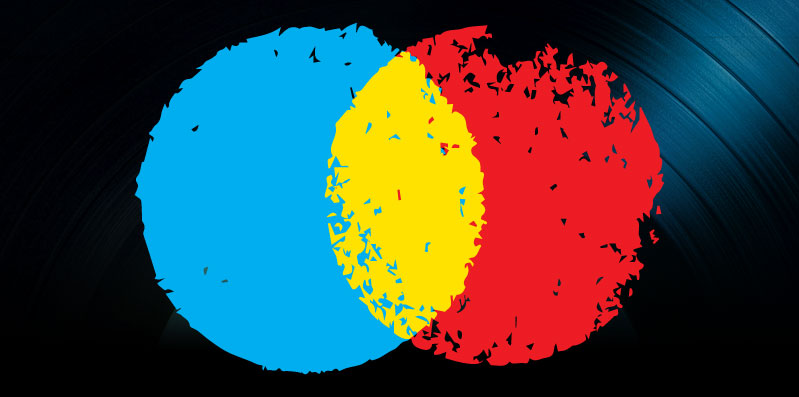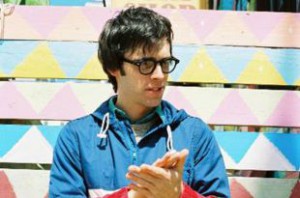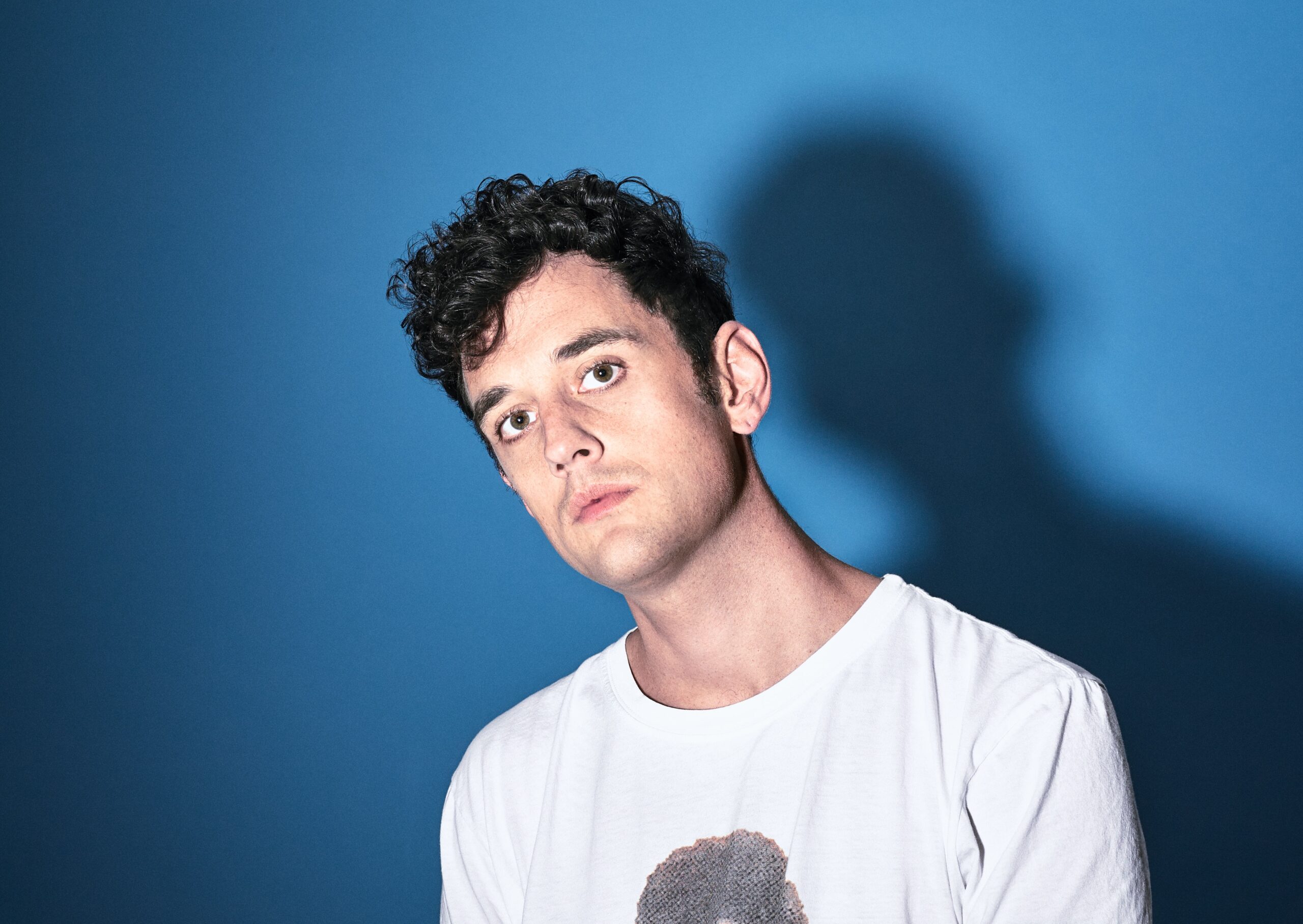
Building an Indie Band
This interview was originally published in September 2011.
Mathieu Santos is one of the founding members of and the bassist for the New York City-based orchestral-pop indie band Ra Ra Riot, signed to Barsuk Records. He and his fellow band members met in January 2006 during their last semester of college at Syracuse University. The band has since released several albums and EPs, toured throughout the country and has had their songs placed in film and television. Ra Ra Riot’s album The Orchard was nominated for an Independent Music Award in January, 2011. In August, Mat released his first solo album, Massachusetts 2010.

I recently spoke with Mat about how Ra Ra Riot came to be, what he has learned about touring and building a band and some advice he has for artists that want to make music their career.
Musician Coaching:
Thanks so much for taking some time to talk to me, Mat. How did you get started with Ra Ra Riot?
MS:
We all met at Syracuse University and officially formed in January, 2006. None of us knew each other before the band started. Milo, our guitarist, was the link between everyone; he brought us all together. We all met for the first time at our first practice.
Musician Coaching:
And it just clicked.
MS:
Yeah. Originally, it was just supposed to be something to do during our last semester at school – a fun thing to do for a few months. It did end up being so much fun, and we were able to build up a little bit of a following within the campus community. So, we decided to keep it going in the summer and book our first tour.
Musician Coaching:
It’s interesting: As a kid, I played in a band at NYU, and after college, I was met with the very harsh reality of how much harder it is once you can’t knock on everyone’s door in your dorm room, and when you no longer have that centralized mechanism of a campus. How did you go about booking a tour when you hadn’t toured previously?
MS:
We were pretty lucky, because right from the very beginning we had a really great manager, Josh, who was a really good friend of ours at Syracuse. He was actually living in the house that we were living in, so he just became our manager by default. He was a management major at Syracuse and was also interning for Sony Records at the time. He was already pretty savvy about the music industry, as was Rebecca, our violin player, because she was a music industry major. We were fortunate enough to have friends in our circle who knew a little bit about what they were doing.
The first tour we booked was pretty bare bones – a lot of small clubs in the Northeast. There were eight shows over a two-week span. It wasn’t anything too grand, but it was enough to get a taste for it and get a little something going. It was nice because having left school, everyone knew someone in every city we played in. We had at least a small crowd come out.
Musician Coaching:
So it was really that simple: “Who do we know in this town? Whose couch can we crash on here, and how can we get people out?”
MS:
Exactly. It was a lot of fun. We rented an old police van and just did it. We didn’t really know what we were doing. But it went okay. And it was fun enough for us to want to try to do it again on a little bit bigger scale.
Musician Coaching:
Obviously, a lot of bands aren’t lucky enough to have a guy like Josh, who I’ve talked to on and off since I saw you guys play at a Ben Sherman – of all places – in 2006. A lot of people don’t get that lucky to have somebody with a lot of practical experience who is really dedicated and just says, “Come hell or high water, money be damned, I’m going to manage that band.” From your perspective, what did you do to grow your band? Which elements and techniques wound up being the most effective for growing a fan base?
MS:
The time we were starting out was when Myspace had reached its pinnacle as an influential tool for bands. So, that helped a lot. Working with Josh was great for everyone, because we couldn’t have gone as far as we did without him. And he probably couldn’t have done as much without a client like us. It worked out perfectly that it was the first band he managed and the first real band we had played in. It was a great symbiotic environment. And it still is today.
In general, the internet was a major help. And Josh is good at making connections. The first thing that really helped us get to the next level was CMJ, which we played the first year we were together, in the Fall of 2006. By then, we had done a bunch of really small tours. And then CMJ worked really well for us. We got a lot of positive coverage on a lot of blogs and a few other publications too as a result.
Musician Coaching:
Did you have a publicist at that time, or was that all Josh just making cold calls?
MS:
At that time, I honestly don’t remember. But it was probably mostly just Josh. I think it was at that CMJ that we met our lawyer, our booking agent and our first publicist. Up until then, we were still doing everything ourselves.
Musician Coaching:
I realize everyone has their own perspective based on their unique life experiences and path in the music business. But you weren’t a band for very long before you had your first booking agent come on board.
MS:
It happened within about the first eight months.
Musician Coaching:
There are so many bands that do well in a lot of different markets and can’t get anyone to take a risk on them. Talent aside, what do you think you guys were doing right that made an agent jump on board?
MS:
When we first formed at Syracuse we formed primarily to be a house party band, which was all that was going on at school. There were a couple clubs on campus, but mostly we played house parties. Our whole performance was tailored to that environment, so there was a lot of uninhibited energy and a lot of interaction with the crowd. We were just having a lot of fun, and our whole idea was just to keep doing it as long as that was still the case. I think a lot of people related to that when they saw us play. It was a fun, un-self-conscious, energetic thing that was different from what a lot of people were doing at the time.
We were really nervous coming into CMJ, because it was our first big thing, and we knew it was also a very industry-focused event. But we tried not to think about it too much and just did what we did. We got so much positive feedback from it, that we knew we were going in a good direction.
Musician Coaching:
And it was right around that time that you started to have labels, publishers and people sniffing around. How would you recommend that people starting out get that attention and then how should they deal with it?
MS:
It was a little confusing, a little scary. It takes a while to gauge where people are coming from. But it was also very exciting, especially since we didn’t expect to be playing together beyond just one semester. Then, we did a couple tours, and CMJ came. And it was the first time we started considering the possibility of doing the band as a full-time gig. We thought, “Wow, there’s really interest. We can actually make the leap from the college environment to touring the country.” It was just a matter of listening the feedback of everyone that was interested in working with us. A lot of it was just feeling everyone out and trying to pick the people who we thought wanted to work with us for the right reasons. That idea has always been really important to us.
It was a little daunting, but we were all in it together. It was the first time any of us had ever experienced anything like it, so it was a galvanizing thing, and we were just really excited to take the next step.
Musician Coaching:
It seems almost like it’s similar to all of a sudden waking up one morning and looking like a Playboy model. Suddenly, everyone wants something from you. It’s very strange. I’ve seen people weather that not so gracefully. But it seems like things have worked out for you.
You mentioned on the Uncensored Interview website that surviving in the music business and doing the DIY thing was very different than what you’d imagined. What are the big, key things you’d want to tell yourself if you were starting over?
MS:
That’s an interesting question. For us, because every step of the way has been a pleasant surprise, I think we’ve always just been excited that whatever is happening is happening. In retrospect, when we look back at our first tour and how bad the conditions were – sleeping in rest stops every other night, etc. – it’s surprising, because at the time it was really exciting. I think we’ve been really cautious the whole time to always trust our gut with the people we work with. That’s definitely served us well.
At the beginning we were definitely a bit naïve in terms of trusting people. On one of our first tours, we had a horrible incident in Montreal. Our van was broken into, and everyone’s laptops, phones and cameras were stolen. It was a situation where we left the van alone for maybe ten minutes. But we weren’t that careful. Now we’re a bit too paranoid for our own good. But it’s better to be prepared than to get ripped off like that. There’s no worse feeling than being really far away from home, having everything taken and just feeling lost. A van with a trailer is a pretty easy target.
I can’t think of anything else off the top of my head that I would do differently. Every step has been such a big learning process for us. We knew nothing about touring the first tour we went on and we knew nothing about recording the first time we went into the studio. But we’ve learned all these things over the years.
Musician Coaching:
I know that questions about your experiences become difficult questions to answer after a while, not because the answers are difficult but because it becomes harder and harder to divorce yourself from the experiences as time progresses. What are some small, practical things you’ve learned about touring?
MS:
Touring is always tough, because a complete lifestyle change can happen in as little as a day. One day, you’re at home and comfortable; the next day, you’re in a van for the next four-and-a-half weeks. It usually takes a while to adjust. The two-week mark is always the hump that’s the hardest to get over. I think we’ve all learned to take touring day by day and not get overwhelmed by the scale of it. If you focus just on what you have to do that day, it makes everything pretty easy to get through. It’s all about finding a system that works for you.
Musician Coaching:
You guys are all still pretty young. But are there things you’ve found you have to be careful of in regards to your health while on tour?
MS:
Lately, a lot of us have been finding more time to go for a run or do other things like that while we’re on tour. Taking out time to do that is really important. You also need alone time and time to reset and take care of your body after you’ve been sitting in a van all day.
We also do try to eat well. It’s a little difficult to do, but if you can find a Whole Foods every day, it makes a big difference. Actually, that’s one of the most important things: Nothing can boost morale more than a good meal. Sometimes it gets hard to find places in the middle of nowhere, but it’s totally worth it if you can make the effort to find good food.
Musician Coaching:
Do you have any additional advice for artists just starting out that want to make music a career?
MS:
Our main guiding motto has always been, “Let’s have fun, and let’s keep doing it as long as we’re still having fun.” We’ve had times in the past where we’ve stopped to reconsider and have asked ourselves, “Do we still want to do this? Are we still having fun?” And we have always decided that yes, we are. We don’t want to be doing anything else. I would tell other musicians, “Just do what feels right. Trust your gut and your instincts.”
Building a good team is also really important. People will tell you a lot of things and make a lot of promises. But you really have to get a feel for the people you work with. And you have to know they’re in it for the right reasons and that they care about your music and your career. It’s very important to be close to the people you work with.
But really, as long as you’re having fun, everything else will fall into place.
To learn more about Mathieu Santos, visit the Ra Ra Riot website and check out his solo album Massachusetts 2010. You can watch the interview the band did for Uncensored Interview below.





